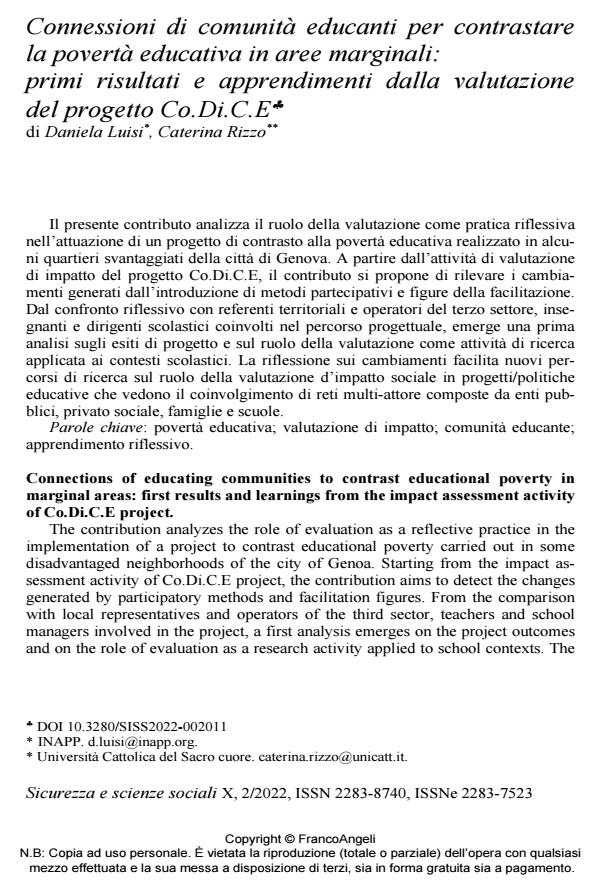Connections of educating communities to contrast educational poverty in marginal areas: first results and learnings from the impact assessment activity of Co.Di.C.E project.
Journal title SICUREZZA E SCIENZE SOCIALI
Author/s Daniela Luisi, Caterina Rizzo
Publishing Year 2022 Issue 2022/2
Language Italian Pages 16 P. 155-170 File size 222 KB
DOI 10.3280/SISS2022-002011
DOI is like a bar code for intellectual property: to have more infomation
click here
Below, you can see the article first page
If you want to buy this article in PDF format, you can do it, following the instructions to buy download credits

FrancoAngeli is member of Publishers International Linking Association, Inc (PILA), a not-for-profit association which run the CrossRef service enabling links to and from online scholarly content.
The contribution analyzes the role of evaluation as a reflective practice in the implementation of a project to contrast educational poverty carried out in some disadvantaged neighborhoods of the city of Genoa. Starting from the impact as-sessment activity of Co.Di.C.E project, the contribution aims to detect the changes generated by participatory methods and facilitation figures. From the comparison with local representatives and operators of the third sector, teachers and school managers involved in the project, a first analysis emerges on the project outcomes and on the role of evaluation as a research activity applied to school contexts. The reflection on changes facilitates evaluation strategies and new research tracks on the role of social impact assessment in educational projects/policies that involve multi-actor networks, public bodies, private social, families and schools.
Keywords: education poverty; impact evaluation; educating community; reflective learning.
Daniela Luisi, Caterina Rizzo, Connessioni di comunità educanti per contrastare la povertà educativa in aree marginali: primi risultati e apprendimenti dalla valutazione del progetto Co.Di.C.E in "SICUREZZA E SCIENZE SOCIALI" 2/2022, pp 155-170, DOI: 10.3280/SISS2022-002011